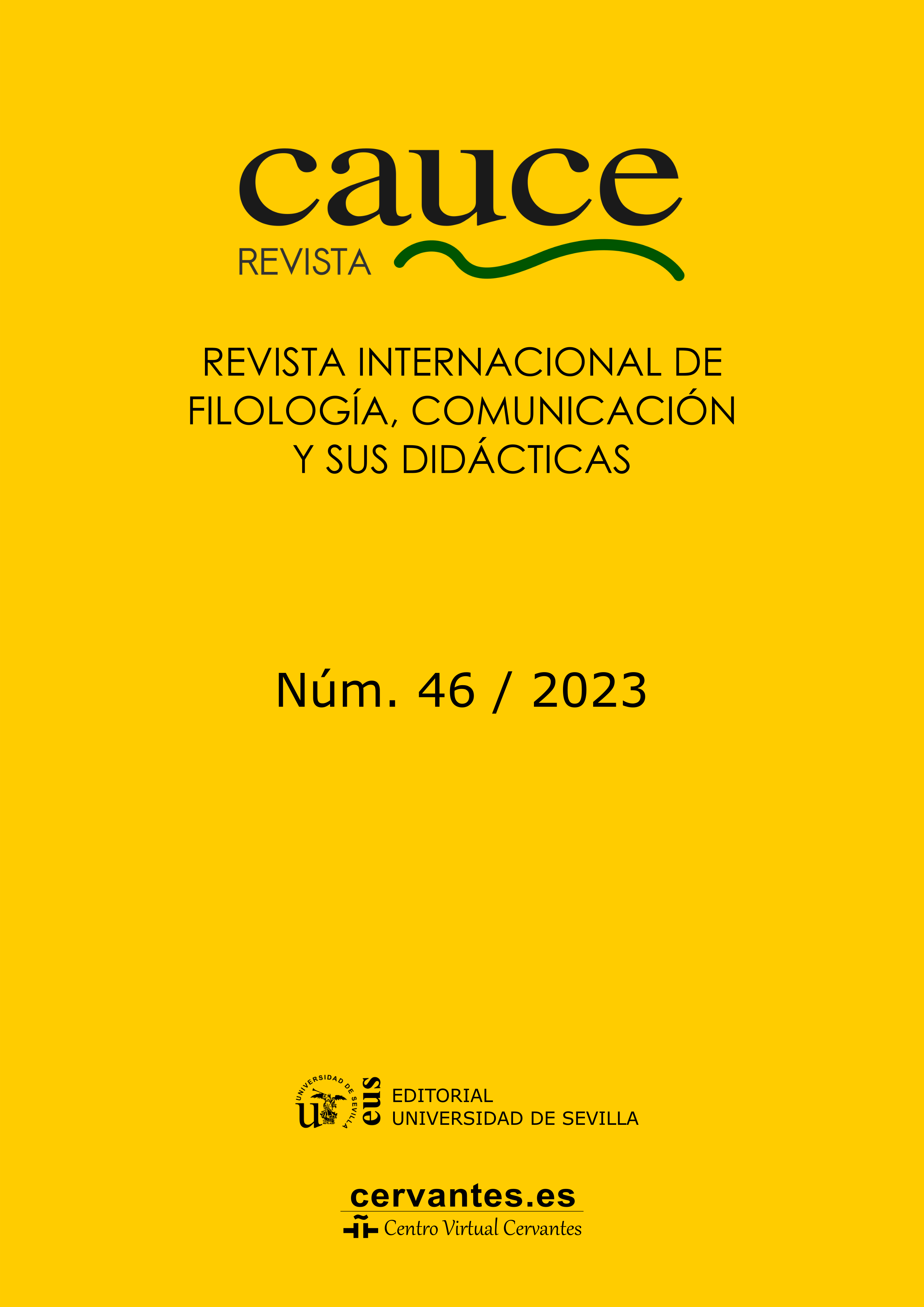How to narrate History and Memory in post-dictatorship Argentina
An analysis of Historia Argentina, by Rodrigo Fresán
DOI:
https://doi.org/10.12795/cauce.v46i1.23966Abstract
Memory (individual and collective) is (and continues to be) one of the major themes running through Argentina's literary production after the dictatorship of the self-styled National Reorganization Process (1976-1983). Such is the case of Historia argentina (1991), the first novel by the writer Rodrigo Fresán (1963); an irreverent and sarcastic novel through which he makes an innovative revision of the recent past of the dictatorship and of the narrative forms of the remembrance of it. This article analyzes the discourse of History and memory proposed by Fresán in his debut novel with the aim of outlining the characteristics of his narrative. This will allow us to better understand not only his subsequent literary production, but also the changes introduced by the New Argentine narrative of the 1990s in the immediately preceding literary context. To this end, we will use concepts from psychology and the sociology of memory to analyze Fresán's particular writing of trauma, as well as the innovations he introduces with respect to the post-dictatorial discourse (not only literary) of Argentina at the end of the century. All this will help us to delve into the narrative treatment of the theme of memory in a generation of writers that, despite having been described as apolitical or lacking in commitment, offers an exhaustive reflection on how to narrate History and memory in post-dictatorship Argentina.
Downloads

Downloads
Published
How to Cite
Issue
Section
License
Los originales publicados en la Revista Cauce se acogen a la licencia "Creative Commons Reconocimiento 4.0" (CC BY 4.0). En caso de posteriores citas o menciones por parte de los mismos u otros autores, dicha licencia obliga a la mención de los autores originales.
Puede consultar desde aquí la versión informativa y el texto legal de la licencia. Esta circunstancia ha de hacerse constar expresamente de esta forma cuando sea necesario.

